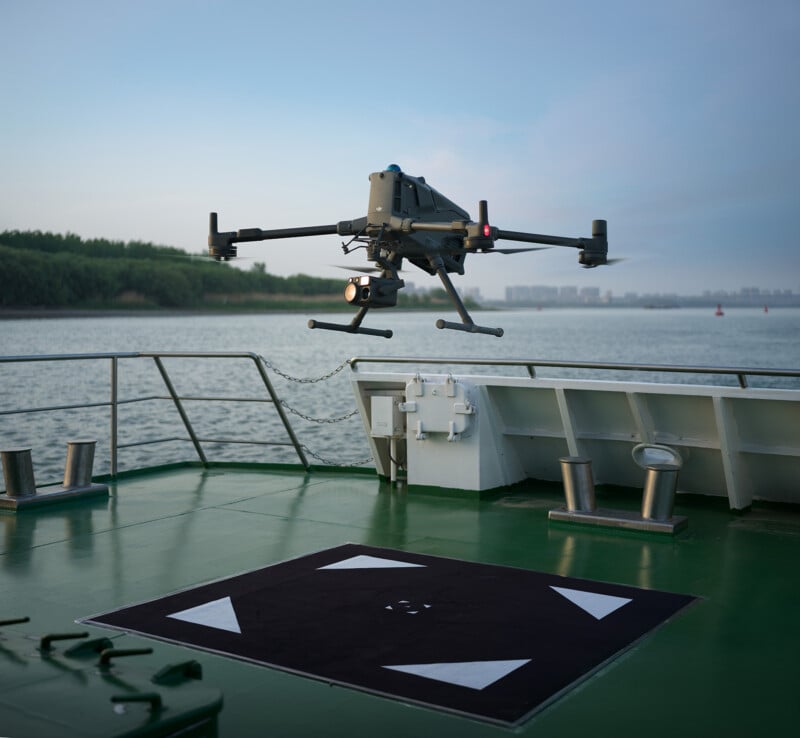6 Months Later, DJI Says US Government Still Hasn’t Started Its Mandated Security Audit
![]()
In April, DJI urged the US government to start the mandated security audit of its business — an audit congress ordered as part of a structured approach for evaluating the security concerns of Chinese-owned companies. Now half a year has passed and DJI says the US still hasn’t started the audit — and the clock is ticking.
“Section 1709 of the 2025 National Defense Authorization Act ‘mandates that within one year of enactment, a designated national security agency must evaluate whether communications and video surveillance equipment from these manufacturers pose ‘an unacceptable risk’ to U.S. national security or the safety of American citizens,’” Adam Welsh, head of global policy at DJI, wrote in a letter to the five national security agencies (the DHS, DoD, FBI, NSA, or ODNI) that could perform that assessment.
As part of that letter, DJI strongly urged the agencies to start that mandated assessment, as it could take months and December was fast approaching. Now two months since then, DJI says it doesn’t appear as though anything has changed.
“On June 6, the Trump administration issued an executive order aimed at boosting innovation in the U.S. drone industry and strengthening the domestic drone supply chain,” DJI writes in a blog post today. These are positive developments and we commend the administration’s efforts to modernize regulations, support safe drone operations, and encourage investment in the U.S. drone ecosystem… But for DJI and the thousands of American drone users who use our technology every day, there is still a key pressing issue that remains unresolved: the overdue security review that would determine whether our new products will continue to be accessible in the U.S. market beyond December.”
DJI says that while it applauds Donald Trump’s two drone-related executive orders, and clearly shows that drones are on the mind of the government, it ignores an issue that has been on the table since December 2024.

“It does not address a pressing issue faced by the most widely-used and thoroughly tested drone platforms on the market — which would have devastating ramifications on the U.S. drone ecosystem,” DJI says. “Thousands of businesses, public safety officials, farmers, entrepreneurs, and others would be cut off from essential tools that enable them to operate safely, efficiently, and cost-effectively. The ripple effects would extend across the U.S. economy, threatening jobs, stalling innovation, and undermining public safety capabilities.”
As it said in April, DJI reiterated that it is prepared for the audit. The robotics company has even said that it “looked forward” to it so that it could showcase its privacy controls and security features.
“If no agency steps forward and completes the review by the December 2025 deadline, the NDAA provision could trigger an automatic ban on DJI – through no fault of our own, but simply because no agency chose to take on the work of reviewing our products,” DJI says, again urging the US government to start the audit congress ordered six months ago.
“We welcome the scrutiny and are confident that our products can withstand their strictest scrutiny. We feel strongly that the people who have built livelihoods using DJI products deserve a fair and timely evaluation to lift the cloud on our company and reassure DJI’s customers and the American public that DJI’s drones are safe and secure,” a DJI spokesperson told PetaPixel in April. That stance doesn’t appear to have changed, and that is — unfortunately — in line with the US government’s sense of urgency in this matter.
Image credits: DJI